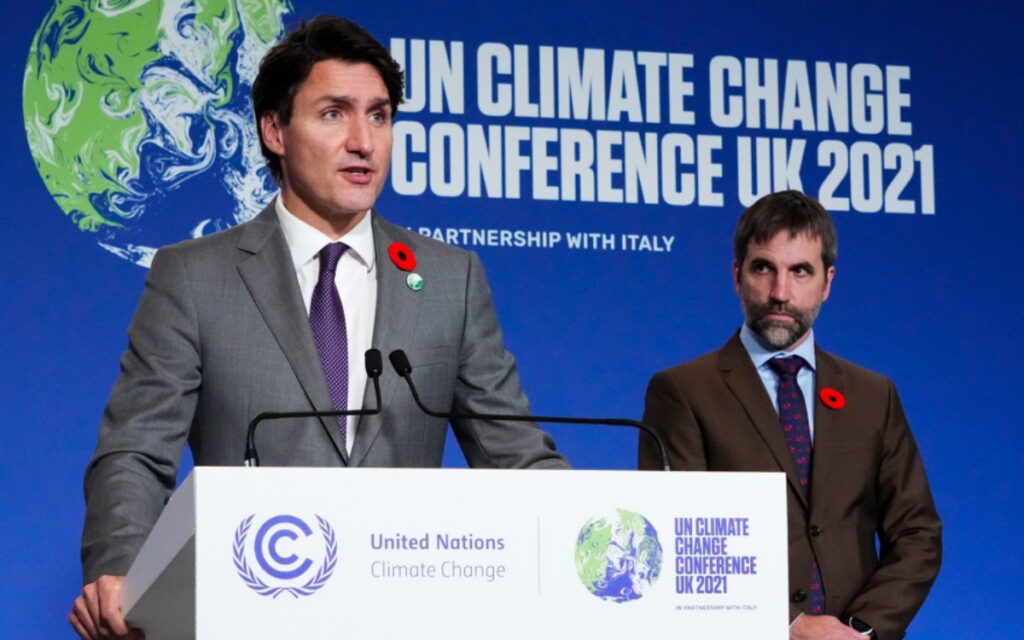
Uphill battle for Canada’s environmental policy continues. Photo credit: The Canadian Press/Sean Kilpatrick
Another week, another challenge for the governing Liberals in Ottawa. To say 2023 has not been the Liberals’ year would be an understatement, as they cannot seem to catch a break. Earlier this month, the government was delivered another blow to its agenda when the Supreme Court declared Trudeau’s major environmental law unconstitutional.
Riding in on a red wave and a sense of optimism in 2015, Justin Trudeau and his government were clear that “the environment and the economy go hand in hand”. That line was said repeatedly by ministers and the Prime Minister any chance they could slip it in. Now, that line, much like the government’s optimism, has faded away.
As the economy nosedives, the Liberals were able to hang their hat on the fact that they had improved Canada’s environmental policy by introducing a nationwide carbon tax and reformed how major infrastructure projects are reviewed and approved through the Impact Assessment Act (IAA). In particular, this legislation intended to streamline assessing the effects of major projects by allowing federal regulators to gauge the potential environmental and social effects of the projects. It also replaced the National Energy Board with a new Canadian Energy Regulator.
In the eyes of some, mainly Western Canadians, this new legislation was meant to delay and hamper the development of Canadian oil, which is the bread and butter for Alberta. To respond to this legislation, the Alberta government questioned its constitutionality and sued the federal government.
After a lengthy court proceeding and appeals process, the case was heard by the Supreme Court which ruled that the cooperation between governments should not override the separation of powers and preservation of constitutional balance and noted that the federal government overstepped their jurisdiction within the constitution framework.
This ruling comes at a particularly bad time for the government as their climate aspirations are under attack on two fronts. Due to concerns about reliability and cost, New Brunswick and Nova Scotia have decided to abandon the federal government’s decarbonization plans for the Atlantic Loop.
The Liberals are also battling with Alberta on proposed changes to Clean Electricity Regulations. The Government of Alberta has launched a national campaign that takes aim at the federal government’s 2035 electrification targets and would like to see a more gradual phase-out of fossil fuels to avoid rapid cost increases and harm to their economy. There is no doubt that the recent victory at the Supreme Court has only empowered Alberta’s government to take on Team Trudeau.
The Liberals have an uphill battle to climb on many fronts and the environment can now be added to that list. Having to amend the IAA will be no easy task, given that when the bill was passed in 2018, the NDP, Bloc and Conservatives all voted against it. With the current dynamics in Parliament and an environment minister who sees compromising as losing, the path to net zero or even a cleaner environment is tricky at best.
Once considered a slam dunk for the Liberals, climate policy is now a foul shot. As the government’s list of priorities only grows, time will tell where this will land and if they can turn the ship around or even maintain their legacy.

Daniel Perry is the Director of Federal Affairs at the Council of Canadian Innovators, leading national advocacy and engagement efforts. With experience in consulting and roles at the Senate of Canada, Queen’s Park, and the Canadian Criminal Justice Association, Daniel has helped political leaders and clients across various sectors achieve their public policy goals. A frequent media contributor and seasoned campaigner, Daniel holds a Master of Political Management from Carleton University.






